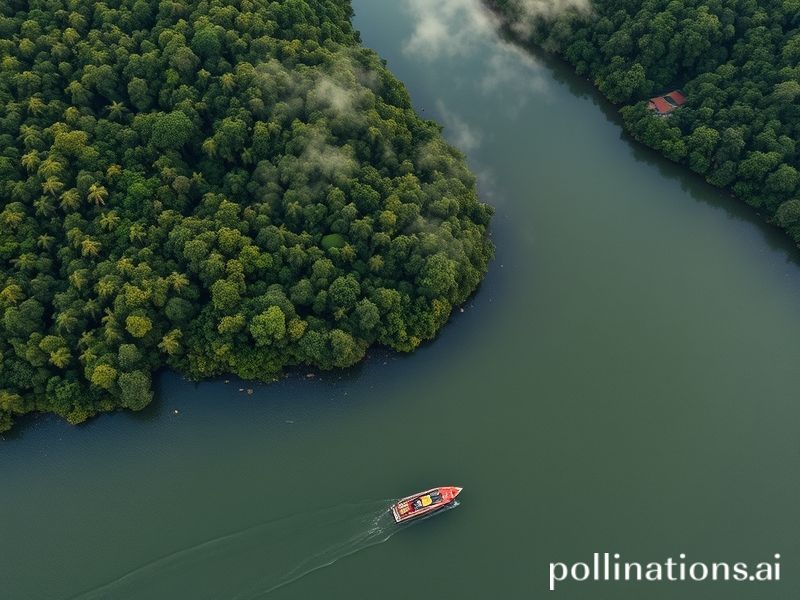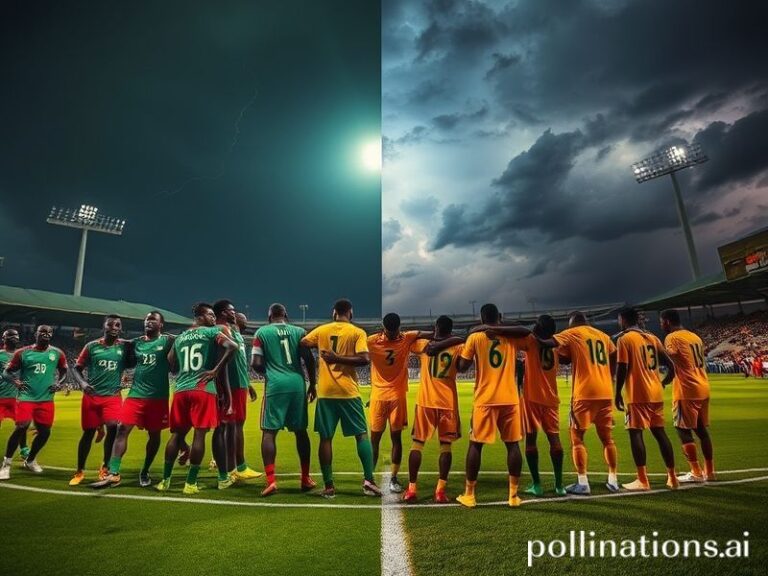Shrimp, Gas, and Patriotism: Why Two Tiny Navies Are Playing Battleship Over a 19th-Century Napkin
Tegucigalpa and Managua have never been accused of modesty, but even by Central-American standards their latest pas de deux feels like geopolitical cabaret performed on a stage made of termite-riddled balsa. While the rest of the planet obsesses over whether an American president can remember which continent he’s bombing, the strip of land between the Caribbean and the Pacific is quietly reminding us that sovereignty is just another word for “who’s holding the machete this week.”
The ostensible casus belli is a 19th-century map so faded it could be a hipster café napkin, but that’s only the appetizer. The real entrée is water—specifically the 93,000 square kilometers of Caribbean Sea that both governments insist contains enough fish, gas, and future cruise-ship berths to turn their respective national budgets from tragicomedy into merely grim farce. International law, in the form of the International Court of Justice, has already issued polite legal poetry on the matter, but ICJ rulings travel about as fast as a donkey on dialysis when domestic approval ratings are sagging.
Cue the grandstanding. Honduras dispatched its navy, a fleet so small it could be crewed by a moderately popular reggaeton group. Nicaragua responded by painting fresh serial numbers on boats it bought second-hand from a Russian scrapyard, proving once again that deterrence is 10 percent hardware and 90 percent Instagram filters. The United States, whose own cartographers once drew half these borders after a three-martini lunch in 1894, issued a statement urging “restraint”—diplo-speak for “please don’t interrupt the fentanyl supply chain.”
But let’s zoom the lens out to global relevance, because nothing screams “late-stage capitalism” like watching two of the poorest nations in the hemisphere rattle cutlasses over hydrocarbons they will almost certainly lease to ExxonMobil the moment the cameras leave. China, ever the opportunist with a chequebook, has offered to build a deep-water port in Trujillo “with no strings attached”—an expression that translates roughly to “only silk threads, very strong.” Meanwhile, the EU is drafting a sternly worded letter about sustainable fishing, which the fish will no doubt appreciate when they’re flash-frozen and shipped to Madrid tapas bars.
Climate change, that unwelcome dinner guest, hovers above the dispute like a vulture eyeing leftovers. Rising seas are nibbling away at the very cays whose ownership is being contested, meaning the nations may soon be fighting over sandbars that exist only at low tide. One almost admires the optimism: arguing about who owns the deck chairs on the Titanic, but in Spanish.
The wider implication is a masterclass in how post-colonial borders—drawn by Europeans on absinthe and whimsy—continue to metastasize into 21st-century flashpoints. Every demagogue from Caracas to Cairo keeps a dog-eared copy of “How to Wag the Dog with Cartographic Nationalism.” It’s cheaper than social programs and pairs nicely with patriotic reggaeton. Investors, those cold-blooded beauties, are already pricing in a “conflict premium” to maritime insurance, which means your next ethically sourced shrimp cocktail will cost an extra dollar—call it a taste of geopolitical terroir.
So what happens next? Most likely a choreography perfected over decades: both sides declare victory, the ICJ politely files another memo, energy companies drill anyway, and the local population receives commemorative T-shirts that read “Mi Cayo es Su Cayo” before the tide washes them away. The rest of us will scroll past the headlines on our cobalt-powered smartphones, mined a continent away by labor almost as underpaid as a Honduran coast-guard recruit.
In the end, the Honduras-Nicaragua spat is less a territorial dispute than a ritual—an annual reminder that in the global casino the house always wins, the chips are made of coral, and the croupier speaks impeccable legalese. Pass the rum; the show’s just getting started.







